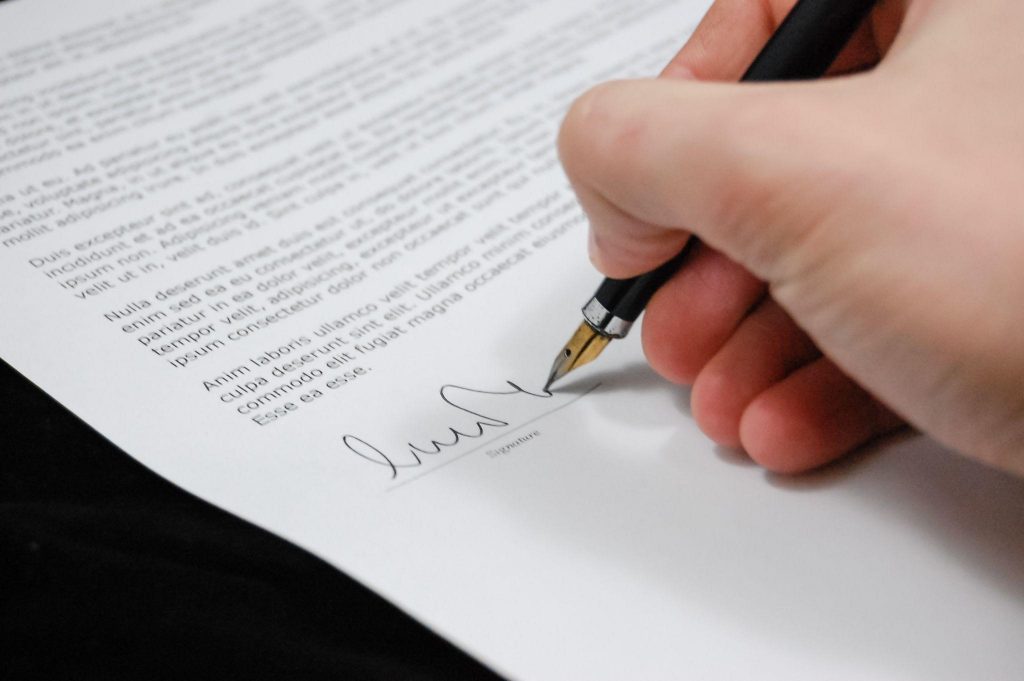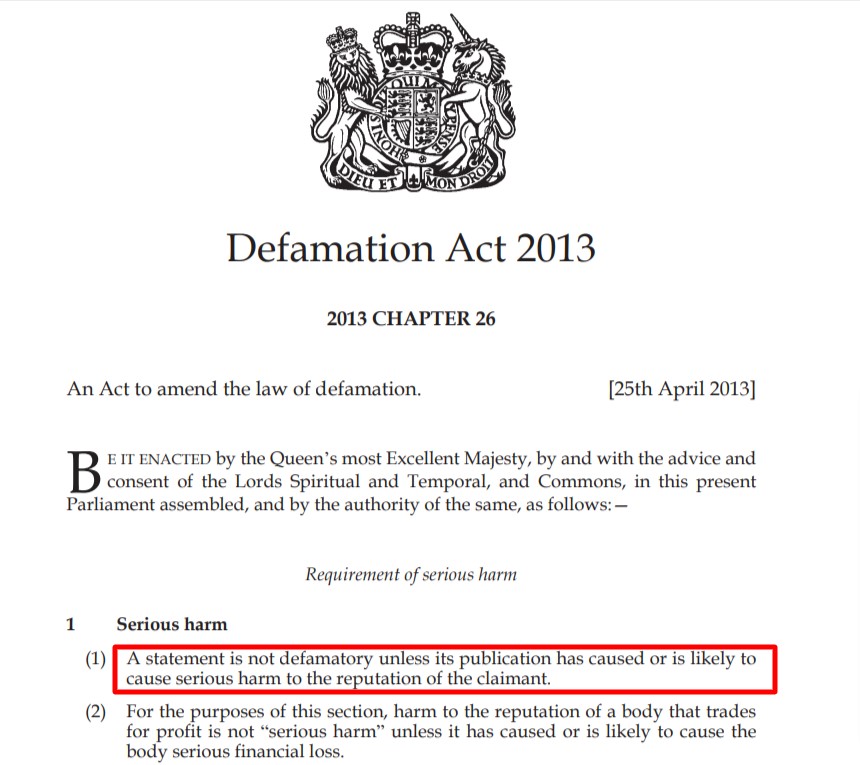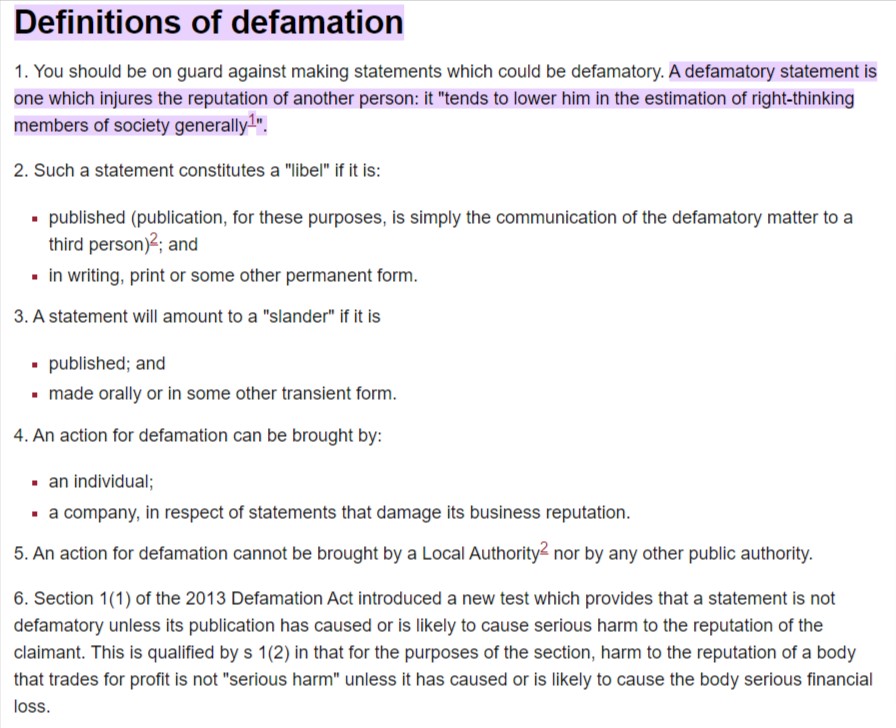$35.3 million converts to £19.3 million. That will buy you about 65 houses in the UK (one house costs £300,000 on average).
Why this number?
This is the amount awarded as compensation to real estate investor Bradley Cohen, who won a defamation suit against Ross Hansen. The former set up a defamatory website, comparing Cohen to Bernie Madoff, a fraudster.
You might not face the same scenario.
However, what if someone did try to malign your reputation?
What if someone claimed you defamed them?
How do you handle legal situations as a businessowner?

Don’t worry. This article will offer all the answers. In the next six minutes, learn all about defamation of character and how you can manage it as a businessowner in the digital age where anything anyone publishes can be used against them.
This complete guide will discuss:
- The definition of defamation of character
- The difference between slander and libel
- The process of making a defamation claim
- The process of defending against a defamation claim
- The time limit for defamation claims
- The damages received for defamation
- And more
Note: Consult a legal advisor or lawyer before you act if you’re not sure what to expect.
Defamation of Character – a complete Guide
What is Defamation of Character?
The UK’s defamation laws have evolved since 1952.
In 1952, the Defamation Act came into force, to amend the law relating to libel and slander, and other malicious falsehoods.
The 2013 Defamation Act amends the Defamation Act of 1952.
Let’s try to understand defamation in the context of the latest law.

The Health and Safety Executive website offers a more in-depth definition of defamation. It defines that defamation of character stands for the act of communicating false statements and perceptions about a person or business that injure their reputation and lowers them in the estimation of right-thinking members of society. But of course, there’s more to it.

Simply, any spoken or written content that:
- May harm the person’s or the business’ reputation among others
- This may result in others not interacting with the person or the business
- May discredit the person or the business
- This may result in the person or the business being subjected to violence, hatred, or ridicule
can be termed as defamation of character.

To put it in nutshell, anything you write or say about another person or business that loosely falls in one or several of the above (but is not limited by) scenarios and as witnessed by a third party can be considered defamation of character.
Note that words can be defamatory both by what they actually say and what they infer.
Furthermore, the inference might be true innuendo which is true words but still considered damaging in case the reader or listener already has additional information on the topic. The inference might be false innuendo as well. In this case, average people might read between the lines of what is actually said.
What’s the difference between Slander and Libel?
Slander stands for defamatory comments that have been spoken or conveyed in some other transient forms. However, slander can refer to cartoons and photographs as well. People can make a slanderous statement using gestures as well.
Slander is a transient form of a defamatory statement that often doesn’t leave a permanent record.
Note that any spoken abuse – no matter how rude it is – that DOES NOT affect the reputation of an individual or a business isn’t considered defamatory.
Furthermore, you must be subjected directly to slander or easily identifiable – for example, the person making the defamatory statement used your nickname.
Libel stands for defamatory statements that are broadcasted in any publication such as:
- In a newspaper
- On a website
- In a magazine
- In a book
- In a film
- In live television
Libel stays in permanent form and is easier to prove than slander due to that very nature. The evidence of libel can be an email, a social media post, or even a workplace bulletin board as well.

What’s the process of making a Defamation Claim?
The first thing you should do is seek legal assistance from a reputed legal firm or legal advisor. Furthermore, collect and retain any evidence your lawyer can use to support your claim in court.
The evidence can include:
- Conversations regarding the defamatory statement with the maker or any third parties. You’d do well to go for written communication in such cases.
- Screenshots of the defamatory statement if it was written or spoken online.
- Comments from potential customers or clients that they have decided not to do business with you because of the defamatory statement. Try to keep a record of such conversations in writing. However, if the customer or client has informed you orally, try to follow up by email to have a written form of communication on the matter.
Furthermore, your lawyer or legal representative will send a letter to the creator of the post demanding to remove the defamatory statement and issue an apology.
If the person doesn’t comply, you can obtain a court order and force them to take down the defamatory statement.
How to defend against a Defamation Claim?
You can use 4 main defenses to fight a defamation claim against you or your business.
Truth
If you can show the statements, you’ve made or published are substantially true, it’s a complete defense.
However, it’s the defendant who must prove the statements were true. The claimant doesn’t need to prove the statements were false.
Publication on a matter of public interest
You must prove the statement was fully or partly made on a matter of public interest.
Furthermore, you must prove that you believed publishing the statement was in the public interest regarding all the circumstances of the case.
Privilege
The defense protects statements that are made on occasions where public policy needs people to speak freely.
The privilege can be qualified (such as job references) or absolute (such as statements made in the parliament where the law offers immunity from suit in slander or libel).
In the case of qualified privilege, you’ll lose the case if the claimant can prove the statement was published maliciously.
Honest Opinion
If you can prove the statement was a statement of opinion, it’s a defense to a defamation claim.
Furthermore, you must prove the statement was based on an opinion and that an honest person could’ve had the opinion based upon any existing fact at the time when the statement was made.
If the claimant can prove the defendant didn’t hold the opinion, you’ll lose the case.

What’s the time limit for making a Defamation Claim?
The general rule of thumb is you need to file a defamation claim within 12 months from the date of publication of the defamatory statement or other forms of defamation of character.

In special cases, the court can extend the time period depending on the unique circumstances of the situation. For example, if someone made a defamatory statement against you more than 12 months ago but you lost your job within the last 12 months because of that statement.
Furthermore, the harm a defamatory statement or other forms of defamation of character causes can escalate with time. Thus, you’d do good to seek legal assistance to remove or retract the offending material as soon as you come to know about it.
What can you receive in Damages for a Defamation of Character Case?
The damages for defamation are usually compensatory rather than punitive, except in special circumstances. The damages are meant to compensate your business for any loss that has occurred instead of punishing the statement maker.
The law categorizes such damages into two categories – special damages and general damages.
Special damages compensate for losses that occurred due to the direct result of the defamatory statement and are easily quantifiable. The losses can include any expenses you bore to control the reputational damage such as hiring a PR or marketing specialist such as a PR and digital marketing services company to address the defamation of character.
Furthermore, the losses can include any income you missed out on from customers or clients who decided to use your services but pulled out after the defamatory statement was published.
General damages compensate for any losses in reputation. However, the law considers a business has suffered serious reputational harm only if the business can show a serious financial loss. Thus, the general damage is based on the economic damage resulting from the defamation.
Defamation of Character – manage your Image and Reputation
Businesses run on reputation which is why they invest in marketing and PR. Small businesses, even more so. Making or receiving a defamation of character claim can be very impactful to your business and you as a business owner. You must therefore know how you can act when faced with such a legal challenge.
Now that you know all about defamation of character and how you can manage it, the knowledge will help you make the most informed decision.
Author Profile

- Online Media & PR Strategist
- As the Chief of Marketing at the digital marketing agency ClickDo Ltd I blog regularly about technology, education, lifestyle, business and many more topics.
Latest entries
 LifestyleApril 9, 2025Top 28 Hatton Garden Jewellers to Shop for the Best Jewellery
LifestyleApril 9, 2025Top 28 Hatton Garden Jewellers to Shop for the Best Jewellery Companies In LondonApril 9, 202510 Best Accounting Firms for Small Businesses in London
Companies In LondonApril 9, 202510 Best Accounting Firms for Small Businesses in London Business AdviceMarch 27, 20259 Ways Technology Helps Businesses Offer Better Promotions
Business AdviceMarch 27, 20259 Ways Technology Helps Businesses Offer Better Promotions Health & BeautyMarch 16, 2025Top 15 Dentists in London – Private Emergency Dentist
Health & BeautyMarch 16, 2025Top 15 Dentists in London – Private Emergency Dentist




